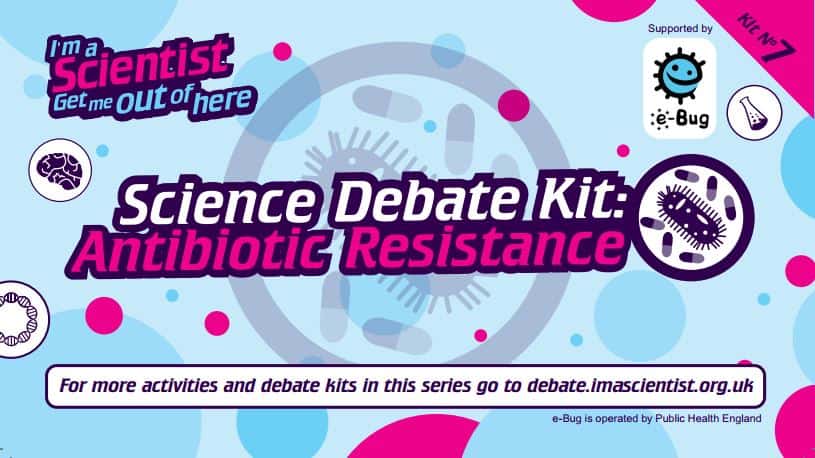 The Antibiotic Resistance Debate Kit discusses whether the Health Service should tell GPs to give back-up prescriptions for antibiotics instead of immediate antibiotics wherever possible.
The Antibiotic Resistance Debate Kit discusses whether the Health Service should tell GPs to give back-up prescriptions for antibiotics instead of immediate antibiotics wherever possible.
The aim of the kit is to explore the social, ethical and political issues behind antibiotic resistance. We’ve created an online survey to help you track your how your students’ opinions change throughout the activity.
All the facts in the Antibiotic Resistance Debate Kit have been researched. This page is populated with references and additional information relating to the kit.
Further reading and resources
World Health Organisation (WHO) report on antimicrobial resistance
A very thorough report that provides and accurate picture of the magnitude of antimicrobial resistance and the current state of surveillance globally. They’ve also put together a summary with key facts, conclusions and a plan of action.
UK’s annual report of the Chief Medical Officer (2011)
UK’s Chief Medical Officer response to the challenges and opportunities that we are facing in the prevention, diagnosis and management of infectious diseases, including recommendations for the future.
The battle agains drug resistance got tougher – Wellcome Trust Blog
Dr Boni, a Wellcome Trust–Royal Society Sir Henry Dale Fellow leading a research programme on the epidemiology and evolution of influenza in the tropics, explains the dangerous scenarios that could develop if we lose the small advantage that we still have in our fight against pathogens.
Superbug crisis: global push to save antibiotics begins – New Scientist
Article about the first global report on the growing ability of bacteria to resist antibiotics, written by WHO’s 194 state members between April and May 2014.
e-Bug’s website
e-Bug is a project led by Public Health England’s (PHE) and involves a consortium of 28 international partner countries. One of their aims is to make students aware of the benefits of prudent antibiotic use and how inappropriate use can have an adverse effect on antibiotic resistance in the community.
In their website you can find lesson plans, interactive quizzes, disease fact sheets… on antibiotics and other microbiology related issues.

